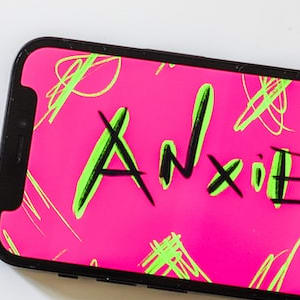play up: Idiom Meaning and Origin
What does ‘play up’ mean?
The idiom "play up" means to emphasize or highlight something, often in order to gain attention or elicit a certain reaction. It can also refer to exaggerating or overplaying a situation or a person's abilities.

Idiom Explorer
The idiom "talk up" means to promote or highlight something in a positive way through enthusiastic or persuasive speech.
Talk up is a phrasal verb commonly used in American English to speak positively about someone or something in order to promote, support, or increase their reputation or visibility. It has various meanings and uses in everyday conversations, as well as in formal and informal writing.
The idiom "put on airs" means to act in a proud or pretentious manner, often to make oneself appear more important or superior than others.
The idiom "put on airs" refers to someone behaving in a pretentious or affected manner, often in an attempt to appear more important or superior than they actually are. This idiom can also be used to describe someone who is being overly proud, arrogant, or haughty.
"Point up" is an idiom that means to highlight or emphasize something, typically to draw attention to its importance or significance.
The idiom "point up" has multiple meanings and applications in the English language.
"Play to win" is an idiom that means to engage in a situation or activity with the intention of achieving victory or success, rather than just participating or going through the motions. It emphasizes the importance of being competitive and putting forth one's best effort to achieve a specific goal or outcome.
The idiom "play to the gallery" means to behave or perform in a way that is intended to gain the favor, support, or applause of the audience or the general public, often without regard for substance or sincerity.
The idiom "play the victim card" means to intentionally act like a victim in order to gain sympathy or to avoid taking responsibility for one's actions.
The idiom "play the victim card" is a commonly used expression in the English language. It refers to the act of portraying oneself as a victim or falsely claiming victimhood in order to gain sympathy, divert blame, or evade responsibility in different situations.
The idiom "play the gender card" means to use one's gender as a way to gain advantage or manipulate a situation, typically in an unfair or strategic manner.
The idiom "play the gender card" is commonly used in English-speaking countries, particularly in the United States. It refers to using one's gender as a tactic to gain an advantage or manipulate a situation.
The idiom "play the fool" means to act silly or foolish, often for amusement or as a way to hide one's true thoughts or intentions.
The idiom "play the fool" is a common phrase used in the English language. It is often used to describe someone who acts foolishly or pretends to be ignorant or naive in a particular situation. The phrase can be traced back to the early 16th century and has remained in popular usage ever since.
The idiom "play someone like a fiddle" means to manipulate or control someone skillfully, often for personal gain or amusement.
The idiom "play someone like a fiddle" is commonly used to describe the act of manipulating or deceiving someone. It compares the action to playing a fiddle, a skill that requires control and precision. This idiom is just one example of the many idioms we use in the English language to describe human behavior.
The idiom "play politics" means to use strategic and manipulative tactics to gain advantage, often in a workplace or social setting.
Amplifying Triumphs
The idiom *play up* has a number of different meanings and uses. It can be used to describe someone who is exaggerating their symptoms or illness to gain attention or sympathy. For example, someone might say, "He always plays up his colds to get out of work" or "She's been playing up her injuries to get sympathy from her friends." This usage of *play up* conveys the idea of someone purposely making something seem worse than it actually is.
Another meaning of *play up* is to highlight or emphasize something. In marketing, for example, the idiom can be seen in phrases such as "The marketing team really played up the product's features in their advertising" or "The presenter played up the positive aspects of the project in his presentation." Here, *play up* is used to indicate a deliberate effort to draw attention to certain aspects in order to make them stand out or be noticed.
Furthermore, *play up* can be used to describe someone who is misbehaving or causing trouble. For example, someone might say, "The children were playing up all night and we couldn't get any sleep" or "The students were playing up in class, disrupting the lesson." This usage of *play up* describes disruptive or unruly behavior.
*Play up* can also be used in reference to an object or system that is not functioning properly. For example, someone might say, "The car's engine is playing up again" or "The computer has been playing up and I can't get any work done." In these situations, *play up* describes a malfunctioning or unreliable object.
In the context of sports or games, *play up* can be used to describe someone who is performing well or excelling. For example, someone might say, "The team's star player really played up in the championship game" or "She really played up in the negotiations, getting a great deal for her client." This usage of *play up* describes someone who is performing at a high level or exceeding expectations.
*play down* is a related idiom that is often used in opposition to *play up*. While *play up* means to highlight or emphasize something, *play down* means to make something seem less important or significant. For example, someone might say, "The CEO tried to play down the company's financial troubles in the press conference" or "He always plays down his achievements to avoid attention." This usage of *play down* conveys the idea of minimizing or downplaying something.
*talk up* is another related idiom that is similar in meaning to *play up*. It means to speak favorably or enthusiastically about something or someone in order to promote them or create a positive impression. For example, someone might say, "The manager talked up the new product to generate excitement among the staff" or "She always talks up her team's accomplishments to impress her clients." This usage of *talk up* conveys the idea of speaking positively or enthusiastically about something in order to create a favorable impression.
The idiom *play up* has several different meanings and uses in the English language. It can refer to someone exaggerating or emphasizing something, misbehaving or causing trouble, describing a malfunctioning object, or excelling in sports or games. The versatility of this idiom allows for its use in a variety of contexts and situations. It is a phrase that has become deeply embedded in the English language and is likely to continue to be used for years to come.
Example usage
Examples of how the idiom *play up* can be used in a sentence:
- He always tries to play up his accomplishments in order to impress his boss.
- The children were tired and started to play up in the supermarket.
- She was feeling unwell and her headache started to play up again.
More "Usage" idioms

